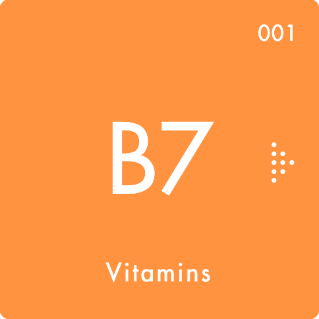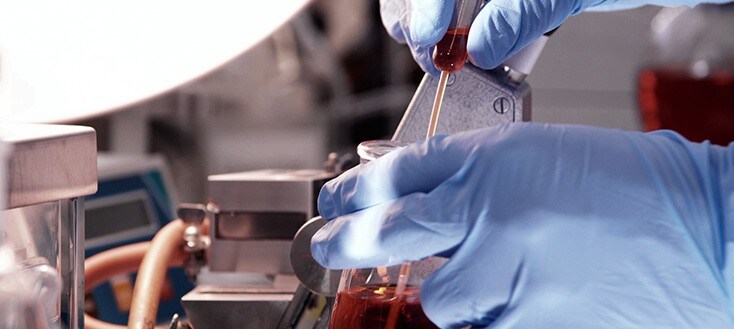
Health functions
Vitamin B7 (biotin) contributes to the maintenance of normal skin, hair and mucous membranes, the nervous system, psychological functions. Read More

Vitamin B7, also known as biotin, vitamin H or vitamin B8, is a water-soluble vitamin, required by all organisms and is classified as a B-complex vitamin. There are eight different stereoisomers of biotin, but only one of them, D-biotin, occurs naturally and has full vitamin activity (essential cofactor for carboxylases in the intermediary metabolism) . Biotin can only be synthesized by some strains of bacteria, mold, yeast, algae, and by certain plant species (1, 2).
Authored by Dr Peter Engel in 2010, reviewed and revised by Ines Warnke on 28.06.2017

Vitamin B7 (biotin) contributes to the maintenance of normal skin, hair and mucous membranes, the nervous system, psychological functions. Read More

Research indicates that vitamin B7 (biotin) is broken down more rapidly during pregnancy and that biotin nutritional status declines during the course of pregnancy (6, 8, 9). Read More
Things to know about Vitamin B7
Research suggests that vitamin B7 (biotin) can improve glucose utilization, which is impaired in diabetes mellitus. Read More
The recommended dietary allowance (RDA) of vitamin B7 (niacin) is dependent on age, gender, and other factors. Read More
National nutrition surveys for some European countries have shown estimated mean dietary vitamin B7 (biotin) intakes for adults of 36 micrograms (mcg)/day (26). Read More
Vitamin B7 (biotin) deficiency is rare. Symptoms include hair loss, scaly rash around eyes, nose, and mouth, depression, lethargy, and hallucinations. Read More